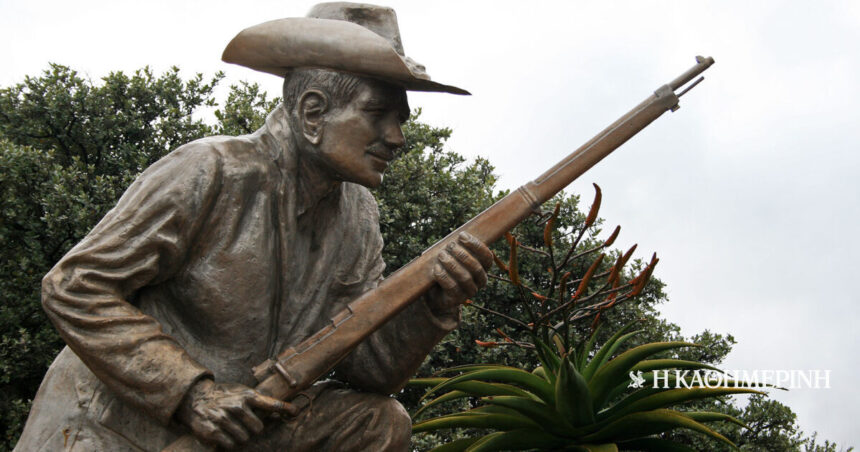In 1899 South Africa was divided territorially: the Cape Colony and the Natal was under British ownership, while the Orange Free State and the Transvaal they belonged to the Boers. The latter were descended from Dutch settlers who had arrived at the Cape of Good Hope as early as 1652 and established farming communities on lands administered by the Dutch East India Company.
The British colonization of the Cape Colony in 1806 marked the beginning of growing tensions between the British and the Boers. By 1867, the discovery of gold and diamonds in the latter’s territories prompted the British to further expand the territories controlled by the Empire to include the Orange Free State and the Transvaal. Aggravating the situation was the demand by the British, in 1899, that all foreigners residing in the Transvaal be given the right to vote. The Boers refused to accept it. Matters would come to a complete impasse when the October 9 ultimatum, which demanded the end of the British presence in South Africa, was rejected. The Second Boer War officially began on 11 October 1899.
Almost ten days later, on October 20, 1899, the Seaforth Highlandersan infantry regiment of the British army which was mainly associated with large areas of the northern Highlands of Scotland, set out from Glasgow bound for Cape Town. However, things in South Africa did not turn out as they expected. On 11 December, the Seaforth Highlanders were surprised by the Boers, who had dug trenches about 137 meters in front of the hills, contrary to Lord Methuen’s predictions. A total of 69 soldiers were killed that day. This was one of the events of the so-called “Black Week”, during which the British were defeated at Magersfontein, Colesberg as well as Stormberg.
The British did not hesitate to place civilians in concentration camps where conditions were truly deplorable
After the initial success of the Boers, however, the huge numerical difference (88,000 Boers to 500,000 British) would gradually lead to reversal of the situation. By the late 1900s, the Boers had now resorted to guerilla warfare. In response to this tactic, the British adopted the “scorched earth policy”, which involved the destruction of anything that could be used to benefit the Boers – from farms to crops. Furthermore, the British did not hesitate to place civilians in concentration camps where conditions were truly deplorable. The tactics in question have caused significant backlash in Britain, particularly from humanitarian organisations.
Finally, on May 31, 1902, a peace treaty was signed by the Boers. Although they were initially reluctant to surrender, the massive loss of life (on both sides) led to the end of the war. The treaty promised that local government in Boer lands would remain in their hands, but it also provided for British ownership of gold and diamond mines and, most importantly, for a Boer-British alliance against black Africans.
Nearly 100,000 lives were lost during the war, of which over a quarter are estimated to have been women and children, who died in the concentration camps from malnutrition and disease.
Column Editor: Myrto Katsigera, Vassilis Minakakis, Antigoni-Despina Poimenidou, Athanasios Syroplakis




